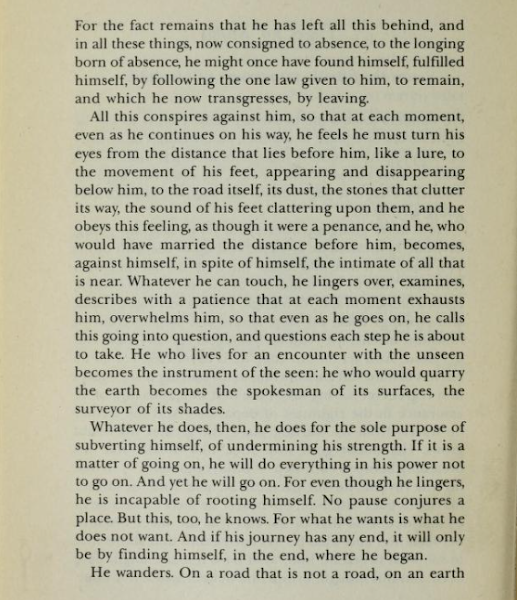A book must be the axe for the frozen sea within us", wrote Kafka. Which is how I felt after I had read Paul Auster's "The Art of Hunger". And, being a book, no matter how complex or difficult to understand it may seem to be, when I had finished it, I could go back to the beginning, read it again, and thus understand that which is difficult and, with it, understand life that little bit better.
Let me take you straight to page 23:
"He moves from one place to another, and dreams continually of stopping. And because this desire to stop is what haunts him, is what counts most for him, he does not stop. He wanders. That is to say: without the slightest hope of ever going anywhere."
"For even though he lingers, he is incapable of rooting himself. No pause conjures a place. But this, too, he knows. For what he wants is what he does not want. And if his journey has any end, it will only be by finding himself, in the end, where he began."
"He wanders. On a road that is not a road, on an earth that is not his earth, an exile in his own body. Whatever is given to him, he will refuse. Whatever is spread before him, he will turn his back on. He will refuse, the better to hunger for what he has denied himself."
"... and comes closest to arriving when farthest from his destination."
The most fundamental delight which literature can offer has something to do with the perception or discovery of truth, not necessarily a profound or complex or earthshaking truth, but a particular truth of some order. This "epiphany" comes at the moment of recognition when the reader's experience is reflected back at him.
I had my experience reflected back at me when I read those words, but I had to go back to the beginning and read it again, to understand that which is difficult and, with it, understand life that little bit better.
And so can you by reading this out-of-print and hard-to-get collection of essays, prefaces, and interviews by Paul Auster, which serve as a kind of literary autobiography, here. As he confessed, "Writing is no longer an act of free will for me, it's a matter of survival". Another epiphany!



